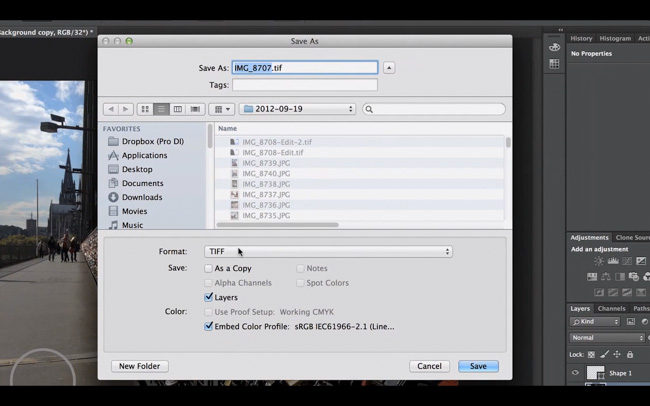
Photoshop’s Principal Product Manager, Bryan O’Neil Hughes, regularly brings how-to videos and breakdowns to the software we love all so much. Perhaps, however, it’s how Bryan is situated in the company that allows him to bring across the material many of us want to understand, but don’t ask for, and in a unique way. Speaking about file formats is something that’s down quite often, I mean, hardly a day goes before someone begins to once again debate the virtues of JPEG and RAW and starts taking sides.

Speaking of which, Hughes begins this informative video and mentions that Photoshop actually can open and read over 500 proprietary RAW files, among all the other types it can handle. It’s one of the reasons he calls this an imaging platform. But with all these types of files that can be read and saved, anyone would be forgiven for not being aware of what file types may be best suited to save their files as. The options to save, while not as exhaustive, can still be exhausting.
[REWIND: Adobe Bridge: The Visual Media Manager You Shouldn’t Be Missing Out On]
While it’ll probably come down to the basics for most, it’s good to see what other options there are, or perhaps even to have a fuller understanding of why you’re choosing the files you do. Maybe you want to keep the nondestructive capability of a file, or you’re handing off a file to another Adobe program, or maybe you want to know what file type would be best for saving your HDR images, this is a good place to start. PSD files as an example, I know a horde of new Photoshop users and experienced ones alike who don’t have a proper understanding of why it’s a default and why it’s advantageous. In short, it’s the only file format that will support Photosohp’s entire library of features.

In just about 4 minutes, Hughes will breakdown a his of file types and have you better able to take advantage of Photoshop. We have, here on SLRL, written a few rather detailed posts on a few of these topics which you can find here, and here.





Get Connected!